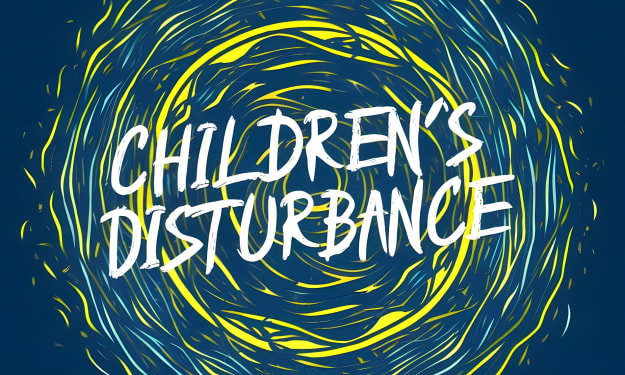Frequent Hatred in Children Is a Normal Emotion
Does your child feel hatred?
Hatred in children is a relatively normal emotion, as long as it is not too frequent or intense. Children do not have a stable and trained psyche and are extremely unstable - emotionally speaking. The transition from one state to another and the expression of intense emotional states are normal, especially in the case of puberty, which goes through an extremely difficult period in the formation of personality.
However, hatred in children manifested by certain behaviors can also be a warning sign for parents to show their problematic development.
First of all, hatred of children - as a normal emotion - can usually be directed in three main directions: towards parents, towards teachers/educators, and other children of similar age.
Hatred of children towards parents is a normal emotion, as long as it manifests itself as an effect of a certain conflict. If after punishing or denying him something, the child shouts "I hate you!", Or if you find it written in his diary or "I hate mom/dad", you should not panic! Probably every child at some point has thought or even expressed how much he hates his parents!
Remember yourself! This emotion is normal - as long as it is the effect of a dispute and is fleeting. But if the child approaches a closed and hostile attitude towards one of his parents, he always frequently expresses his hatred towards him, it is a clear sign of a relationship difficulty and you have to move on to solving this situation!
A more difficult relationship is sometimes inevitable between the child and one of the parents, but if it is loaded with intense and obvious hostility, it can have negative effects on the child's development and the atmosphere of family life. Communication is - once again, the best solution.
Ask the child why he feels what he feels, why he thinks he is being wronged, tell him that he has his share of justice, but that hatred and self-closure are never a solution. If the parents are willing to talk to their child and not always treat him from above, everything can be resolved.
Hatred of children is often directed at teachers. There is always a teacher about whom your child tells you "I hate him and he hates me", which causes the subject taught by that teacher to cause learning problems in the child. Those ugly teachers are often the ones who teach the most unpopular subjects for children: math, chemistry, history.
Hatred for the teacher directly causes hatred for the subject taught and vice versa: hatred for a school subject causes hatred for the one who teaches it! Some teachers, unfortunately, simply cannot relate adequately to children, treat them with authority, are harsh, disrespectful, and make extensive use of sanctions.
The teacher is essential - like the parent - a figure of authority, but if in the case of parents the equation and attachment, the child's natural love for them, the teacher is a stranger who becomes the perfect target for hating children. Teachers who are too authoritarian, do not know how to communicate with children, are often punished and rewarded, do not accept communication in both directions, have a closed and routine teaching-learning style - those teachers inevitably attract the hostility and dislike of children.
Worse, some teachers adopt a sarcastic style, laughing at children, nicknaming them various "funny" names and thus affecting their self-image, favoring their negative emotions. As long as hatred is not directed at all teachers, without discrimination or differentiation, but at those who did not know how to relate to the little ones, hatred is not an abnormal emotion.
Hatred of children is often directed at those of close age: siblings, classmates, children in the neighborhood. This negative emotion occurs because the child socializes with those of close age through social comparison: "X is like that, I don't", X has that, I don't ", X goes there, I don't".
This comparison is often made to the detriment of the child: he sees only what the other has and he does not see what he has, but the other does not! This is because in children, jealousy is an extremely intense emotion, and the sense of ownership is intensified to the extreme! When the child sees something attractive that is in the possession of someone else and that he cannot get, his solution is hatred!
Especially in the relationship between brothers and sisters, there is hatred in children, caused both by this jealousy and a sense of ownership: "why did my brother/sister receive that and I didn't?", As well as by the struggle between brothers for power and attraction. parental attention. All they can do is show both children the same attention and affection and never act as if they favor or prefer one of them!
As long as this hatred is not permanent, is not directed at all children, and is not manifested by frequent aggressive behaviors - beatings, verbal altercations - this is normal.
Finally, hating children is usually a normal and fleeting emotion: one day he hates you, one day he ignores you, one day he always stays on your head! But this emotion can be a sign of poor personality development, a sign of an extremely negative evolution of the child.
When this hatred is manifested by certain common deviant behaviors, parents should sound the alarm and communicate with the child, find out what difficulties they face and propose solutions. And if these behaviors are common, parents must consult a specialist, because they can be signs of future delinquent behavior and a deficient and even criminal personality!
What are these behaviors caused by hatred in children, which should be seen as alarm signals: frequent and aggressive and intentional destruction of surrounding objects, burning of objects, plants or insects, injury of small or large animals (from spiders, mice in puppies or cats).
This manifest aggression will most likely be directed at people in the future (the evolution of deviant behavior goes from objects to animals and then to humans) and is a sign of major difficulties in the child's development.
But just because they are frequent - just because a child has burned a fly with a magnifying glass or because he has broken a book does not mean that you have to run to the psychologist!
About the Creator
Enjoyed the story? Support the Creator.
Subscribe for free to receive all their stories in your feed. You could also pledge your support or give them a one-off tip, letting them know you appreciate their work.






Comments
There are no comments for this story
Be the first to respond and start the conversation.